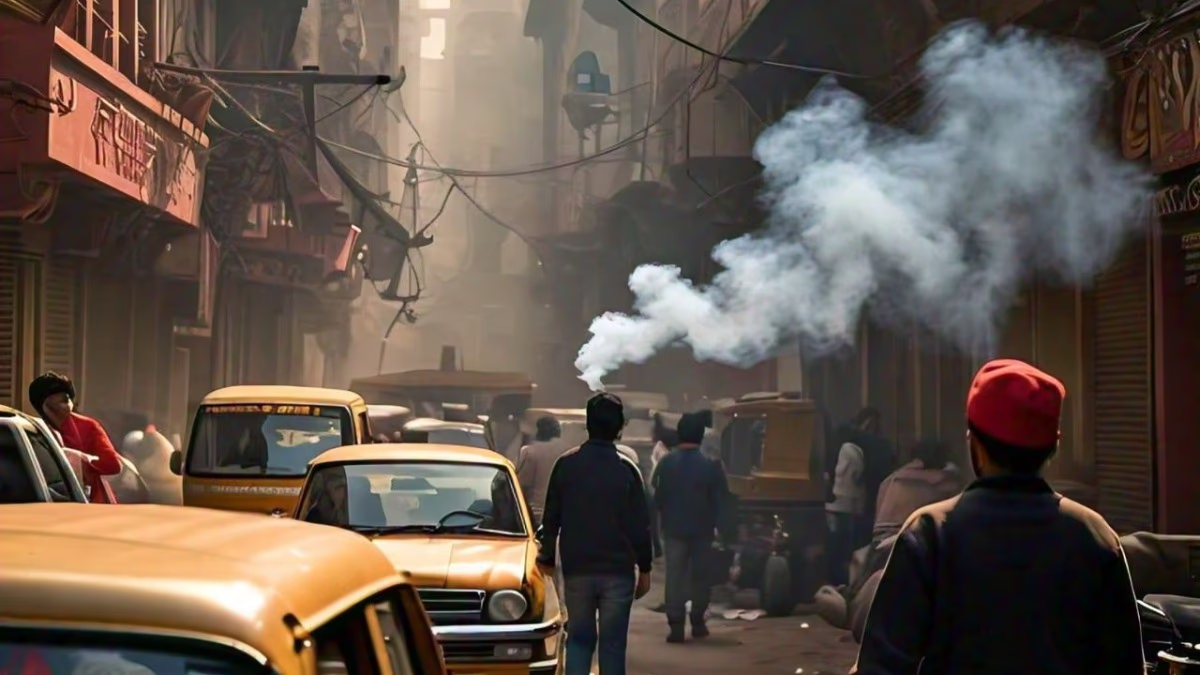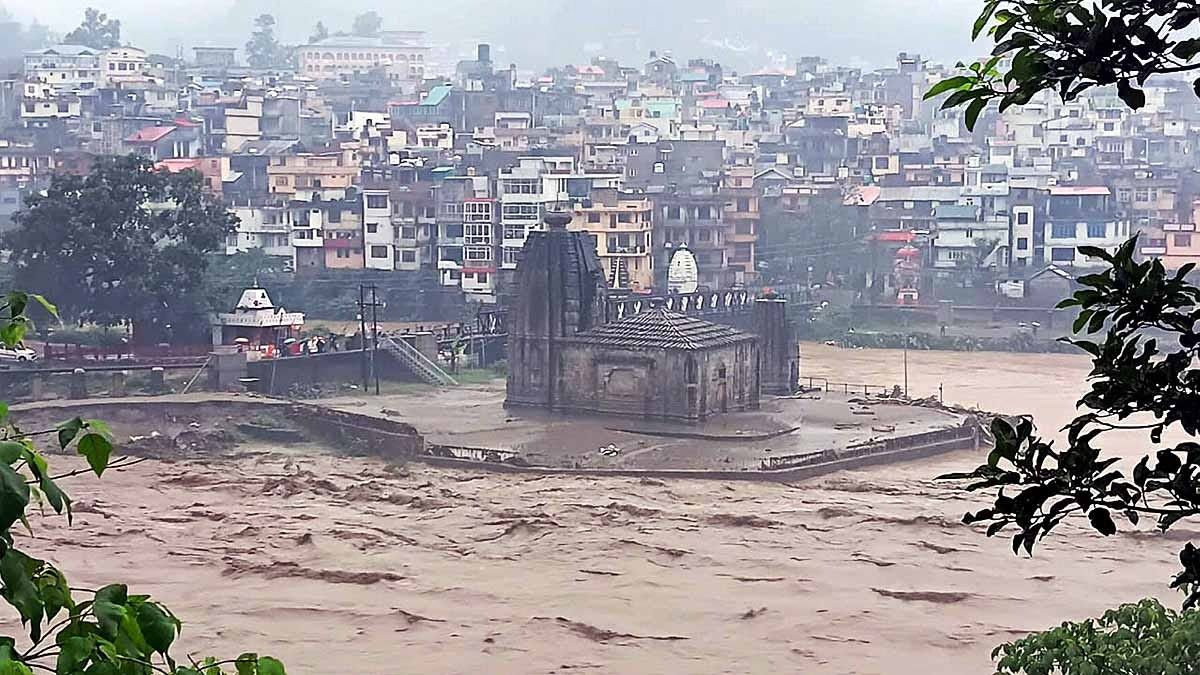A thick blanket of smog has enveloped the National Capital Region, including Delhi. In some areas, the AQI has soared beyond 500. Efforts are underway to curb this smog. CAQM has enforced GRAP-4, and schools throughout almost the entire NCR are closed. Breathing in Delhi's air is equivalent to inhaling the smoke of 22.2 cigarettes on average.
This means if you are breathing while in Delhi, the damage to your lungs is equivalent to smoking 23 cigarettes a day. The average AQI in the capital is 489. Apart from Delhi, other cities also present worrying statistics, such as Chandigarh, where the AQI of 241 equals smoking 11 cigarettes daily.
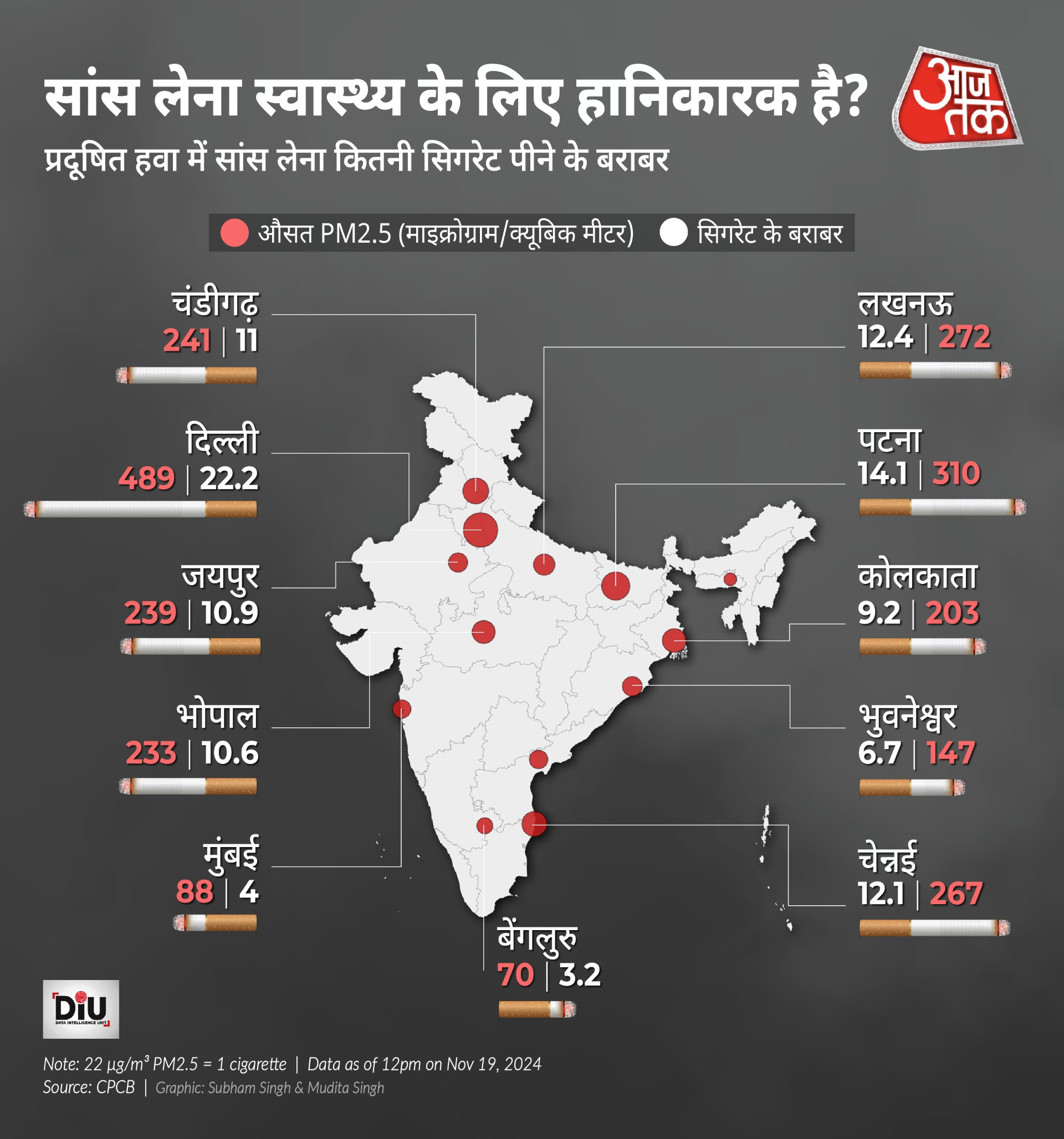
Source: aajtak
Other Cities Under Toxic Air
In Jaipur, breathing the air equates to smoking 10.9 cigarettes. In Bhopal, the capital of MP, it’s equivalent to 10.6 cigarettes. Mumbai's air equates to 4 cigarettes, whereas, in Lucknow, it's 12.4, Patna 14.1, Kolkata 9.2, Bhubaneswar 6.7, and Chennai equals 12.1 cigarettes' effect.
Is It Air With Poison or Poison With Air?
The air is toxic in almost every capital city, with Delhiites facing the highest risk. This problem recurs each year in the capital, with air quality deteriorating after September, and by winter, breathing becomes an ordeal. In 2023, there was just one day when the AQI was below 50. For 60 days, it was 'satisfactory,' 145 days 'moderate,' 77 days 'poor,' 67 days 'very poor,' and 15 days 'severe.'
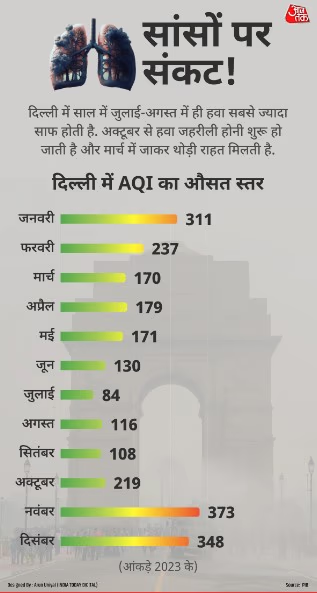
Source: aajtak
Relief From Artificial Rain?
To address the dire issue of pollution, the AAP government in Delhi is contemplating artificial rain. The plan involves creating real rain with artificial clouds, and preparations for this are already underway. Environment Minister Gopal Rai has written to the Union Environment Minister Bhupender Yadav advocating for this artificial rain solution given the critical pollution levels.
What Measures Have Governments Taken?
Due to hazardous pollution levels, Delhi has adjusted government office hours. MCD offices will operate from 8:30 AM to 5:00 PM, while Delhi government offices will function from 10:00 AM to 6:30 PM. These staggered timings are a response to the pollution crisis.
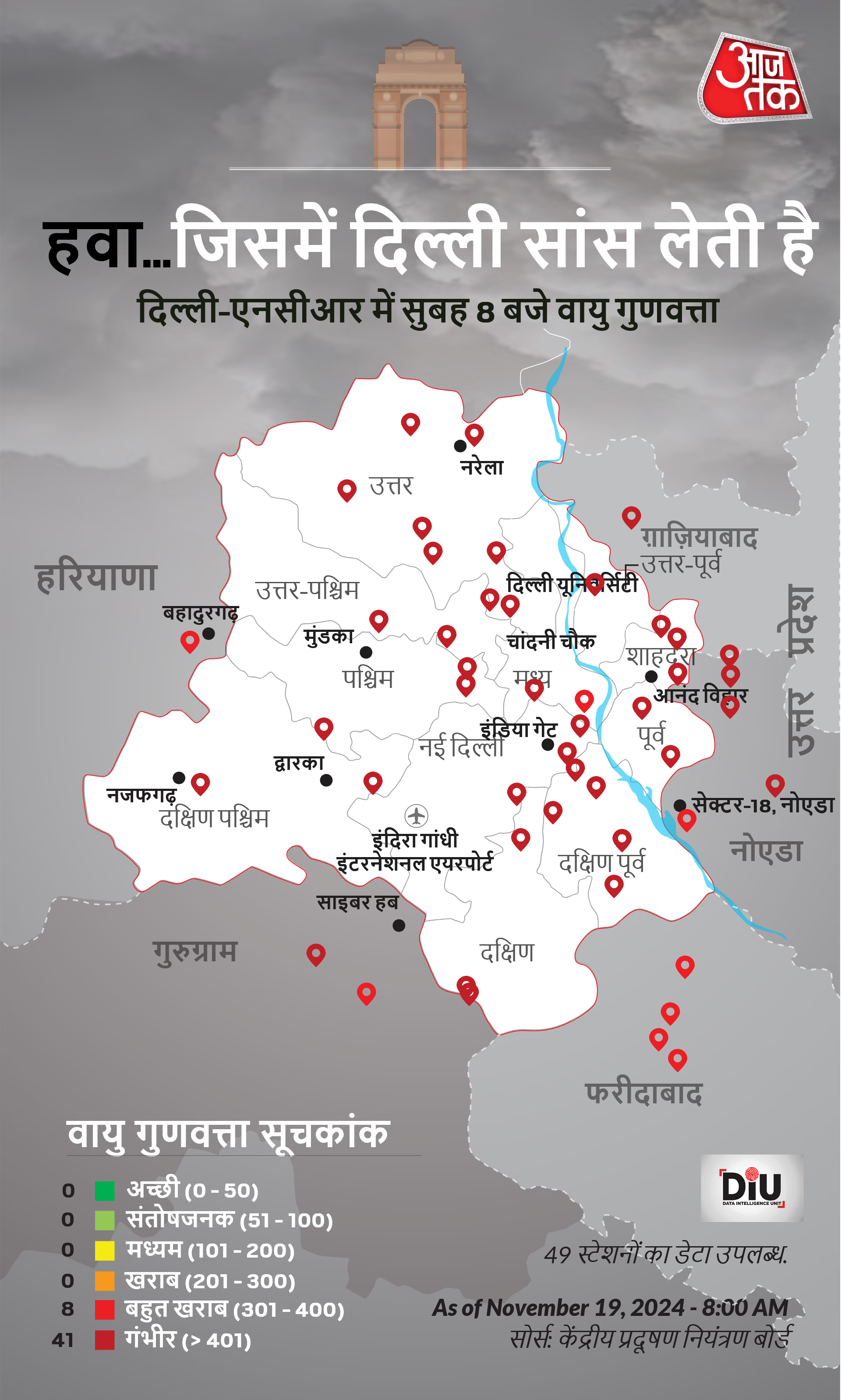
Source: aajtak
Restrictions Imposed Under GRAP-4
1. Entry of trucks into Delhi is banned except for those carrying essential goods/services, though LNG/CNG/electric/BS-VI diesel trucks are exempt.
2. Light commercial vehicles not running on EVs/CNG/BS-VI diesel, registered outside Delhi, are denied entry unless carrying essential items/services.
3. Delhi has implemented a strict ban on BS-IV or lower diesel medium and heavy goods vehicles, except for those used in essential services.
4. Like GRAP-3, construction and development activities for public projects like highways, roads, flyovers, power transmission, pipelines, telecommunication, etc., are restricted.
5. State governments in NCR, including GNCTD, may opt to shut physical classes from Grade VI to XI and shift to online modes.
6. State governments/GNCTD might decide to allow public, municipal, and private offices to work at 50% capacity, with the rest working from home.
7. Central government offices may also allow personnel to work from home.
8. State governments could consider additional emergency measures like closing colleges/academic institutions, halting non-emergency commercial activities, and implementing odd-even rules for vehicles.
9. Citizens may be requested to adhere to civic charters to aid in maintaining and improving air quality under GRAP-I, GRAP-II, and GRAP-III.
10. Elderly persons with heart/respiratory issues, brain illnesses, or chronic illnesses might be advised to avoid going outside.
